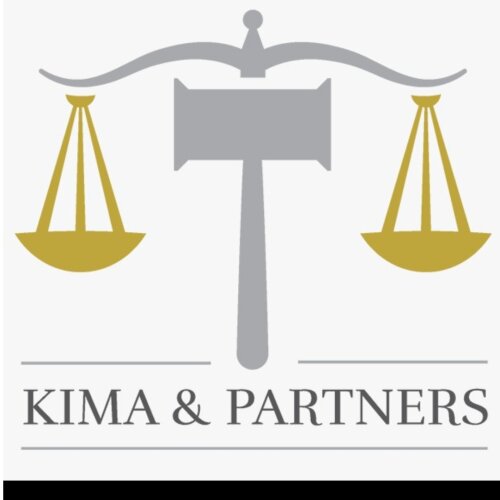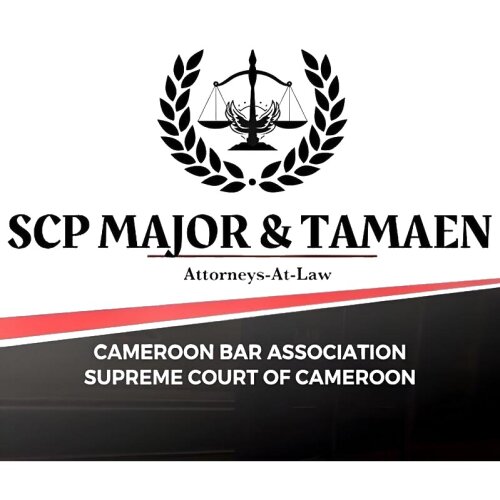Best Restructuring & Insolvency Lawyers in Yaoundé
Share your needs with us, get contacted by law firms.
Free. Takes 2 min.
List of the best lawyers in Yaoundé, Cameroon
About Restructuring & Insolvency Law in Yaoundé, Cameroon
Restructuring & Insolvency law in Yaoundé, Cameroon provides the legal frameworks and procedures for businesses and individuals facing financial distress. The main objective of these laws is to enable struggling entities to reorganize their operations, restructure their debts, or, if necessary, enter into orderly liquidation. Cameroon is a member of the Organisation pour l'Harmonisation en Afrique du Droit des Affaires (OHADA), which governs many business-related laws, including those that regulate insolvency and restructuring processes. The Uniform Act on the Organization of Collective Proceedings for Wiping Off Debts sets forth the rules and procedures in this area. In practice, this means that both local Cameroonian law and OHADA regulations are relevant to anyone dealing with insolvency or restructurings within Yaoundé.
Why You May Need a Lawyer
Navigating restructuring and insolvency is often complex, with significant legal and financial implications. Common situations where you may require legal help include:
- When your business is unable to meet its debt obligations and you are seeking options to avoid liquidation
- If you are a creditor trying to recover debts from a financially distressed company or individual
- When negotiating with stakeholders about debt repayments, asset sales, or business restructuring plans
- If you are facing formal collective proceedings such as liquidation or judicial reorganization
- During the assessment of personal liability for company directors or managers
- If you need assistance understanding or challenging commercial contracts affected by insolvency
- For protection against unfair practices by creditors or other parties involved in insolvency
- If you need guidance about cross-border or international insolvency issues (especially if dealing with OHADA zone countries)
Engaging a specialized lawyer ensures your rights and interests are protected throughout restructuring or insolvency proceedings.
Local Laws Overview
The key laws governing restructuring and insolvency in Yaoundé stem from both Cameroon’s national legal system and the OHADA Uniform Act. Some of the most relevant legal aspects include:
- Collective Proceedings: These are formal legal processes that may include preventive settlement, judicial reorganization, and liquidation of assets. Once initiated, these proceedings affect how debts are managed and who can claim against the insolvent party.
- Role of the Trustee (Syndic): In court-supervised proceedings, an independent trustee is appointed to oversee the process, safeguard creditors’ interests, and ensure the legal compliance of the debtor.
- Stay of Proceedings: The law provides temporary protection from creditors while restructuring plans or insolvency proceedings are underway, preventing individual collection actions.
- Debt Restructuring: The legal framework allows for reorganization plans that may alter repayment terms, reduce amounts owed, or enable asset sales, subject to court and creditor approval.
- Director Liability: Business leaders may be held responsible for certain actions or negligence that worsen insolvency.
- Creditor Hierarchy: The law outlines the order in which creditors are paid, with certain debts (such as employee wages and taxes) given priority.
- International Elements: OHADA law provides mechanisms for managing insolvencies involving entities that operate across borders within the OHADA area.
Knowledge of these laws is crucial for anyone involved in or affected by restructuring and insolvency in Yaoundé.
Frequently Asked Questions
What is insolvency under Cameroonian and OHADA law?
Insolvency occurs when an individual or company cannot meet its debts as they fall due, or when liabilities exceed assets. OHADA law provides a unified legal framework for declaring and managing insolvency across its member states, including Cameroon.
What is the difference between restructuring and liquidation?
Restructuring aims to help a distressed business recover by reorganizing its debts and operations. Liquidation, on the other hand, is the process of selling off assets to repay creditors and closing down the business.
Who can initiate insolvency proceedings in Yaoundé?
Insolvency proceedings can be initiated by the debtor (self-declaration), creditors, or, in some cases, by the public prosecutor where there is a public interest concern.
Can a company continue to operate during restructuring?
Yes, in most cases, the company remains operational under supervision while a restructuring plan is negotiated and implemented, unless ordered otherwise by the court.
Are individuals also subject to insolvency laws?
Yes, both individuals and legal entities (such as companies) can be subject to insolvency proceedings if they are unable to meet their financial obligations.
How does the court protect creditors during insolvency?
The court may appoint a trustee to manage the debtor’s assets and affairs. Creditors are organized into classes, and each class’s rights are considered during distribution. The process ensures fair treatment according to legal priorities.
Can debts be reduced or renegotiated during restructuring?
Yes, part of the restructuring process often involves proposing new repayment terms, reducing the total amount owed, or arranging asset sales. Such plans must be approved by creditors and the court.
What happens if the restructuring plan fails?
If a restructuring plan is unsuccessful, the court may order liquidation of the debtor’s assets to repay creditors, and the business will typically cease operations.
What is the role of the syndic (trustee)?
The syndic is a court-appointed professional who oversees the restructuring or liquidation process, manages the debtor’s assets, and represents the interests of creditors.
How can a lawyer assist during restructuring or insolvency?
A knowledgeable lawyer can help by explaining your rights, guiding you through legal procedures, negotiating with creditors, preparing documentation, and representing you before the court or in creditor meetings.
Additional Resources
If you require further information or assistance on restructuring or insolvency matters in Yaoundé, the following resources may be helpful:
- Court of First Instance (Tribunal de Première Instance) Yaoundé: Handles local insolvency and restructuring cases.
- OHADA National Commission of Cameroon: Provides guidance and documents related to OHADA laws.
- Ministry of Justice, Cameroon: Offers general information about business law and legal processes.
- Cameron Bar Association: Directory of licensed legal practitioners specializing in business law, including restructuring and insolvency.
- Local Chambers of Commerce: May offer seminars or support services to businesses in financial distress.
Next Steps
If you are facing a restructuring or insolvency situation in Yaoundé, the following steps can guide you towards resolving your issues:
- Gather all relevant financial and legal documents for your business or personal situation.
- Schedule a consultation with a legal professional specialized in restructuring and insolvency.
- Discuss your objectives, such as business recovery or orderly liquidation, and openly share all challenges you are facing.
- Work with your lawyer to explore available legal options under Cameroonian and OHADA law.
- Act promptly, as delaying legal advice can limit the options available to you and may worsen financial difficulties.
- If your situation involves cross-border elements, ensure your lawyer has experience with OHADA procedures and international insolvency.
Seeking timely professional advice is crucial for protecting your interests and achieving the best possible outcome in any restructuring or insolvency process.
Lawzana helps you find the best lawyers and law firms in Yaoundé through a curated and pre-screened list of qualified legal professionals. Our platform offers rankings and detailed profiles of attorneys and law firms, allowing you to compare based on practice areas, including Restructuring & Insolvency, experience, and client feedback.
Each profile includes a description of the firm's areas of practice, client reviews, team members and partners, year of establishment, spoken languages, office locations, contact information, social media presence, and any published articles or resources. Most firms on our platform speak English and are experienced in both local and international legal matters.
Get a quote from top-rated law firms in Yaoundé, Cameroon — quickly, securely, and without unnecessary hassle.
Disclaimer:
The information provided on this page is for general informational purposes only and does not constitute legal advice. While we strive to ensure the accuracy and relevance of the content, legal information may change over time, and interpretations of the law can vary. You should always consult with a qualified legal professional for advice specific to your situation.
We disclaim all liability for actions taken or not taken based on the content of this page. If you believe any information is incorrect or outdated, please contact us, and we will review and update it where appropriate.











